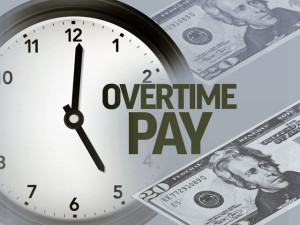Time off in lieu of cash payment for overtime—when is it valid?

ASSOCIATED PRESS
Q: I heard the news that the U.S. Congress passed a law allowing employers to pay their employees’ overtime work through paid time off. This is already happening at my work at a private company in Los Angeles. There are days when I work more than 8 hours per day and my employer gives me paid time off instead of cash. What are my rights regarding this employment practice?
A: The Working Families Flexibility Act of 2017 was indeed approved by Congress on May 2, 2017 and is now heading to the Senate for review. Regardless of what happens, California law already allows certain non-exempt hourly employees to receive compensatory time off (variously known as CTO, comp time, or paid time off) in lieu of overtime pay.
However, the employer must satisfy the following conditions in order for its comp time policy to be valid under California law:
(1) The employee must request in writing to be paid in comp time in lieu of overtime pay
(2) The employee is regularly scheduled to work no less than 40 hours in a workweek.
(3) The comp time must be provided at a rate that is no less than the applicable overtime rate. This means one and one-half hours of comp time must be granted for the ninth hour of work in a work day. In other words, one hour of overtime work is equivalent to 1.5 hours of comp time.
(4) The comp time must be provided through a collective bargaining agreement, memorandum of understanding, or other written agreement between the employer and the employee before the performance of the work.
(5) The employee has not accrued comp time of more than 240 hours. Any employee who has accrued 240 hours of comp time must be paid overtime compensation for any additional overtime work.
(6) If compensation is paid to an employee for accrued comp time, it must be paid at the employee’s current regular rate.
(7) An employee should be paid for all unused comp time if the employee is terminated. The pay must either be 1) the average regular rate received by the employee during the last three years of employment, or 2) the final regular rate received by the employee, whichever is higher.
(8) The employee must be permitted to use any accrued comp time within a reasonable period after making the request, if the use of the comp time does not unduly disrupt the employer’s operations.
(9) If the employee requests the employer to pay overtime hours in money instead of comp time for any comp time accrued for at least two pay periods, the employer must comply.
(10) Employers must keep records that accurately reflect comp time earned and used.
The above comp time rules apply only to certain hourly employees. These are employees who work in the following industries: personal service; professional, technical, clerical, mechanical and similar occupations; laundry, linen supply, dry cleaning and dyeing industry; mercantile; transportation; broadcasting; motion picture; and household occupations
Many employees receive comp time as extra compensation for having worked overtime. Even though California law allows this practice for certain non-exempt employees, how the comp time is computed and provided may raise some serious issues.
For example, employees who worked 12 hours in one day (that is, 4 hours of overtime) may only be provided 4 hours of comp time, when in fact, they have accrued 6 hours. If this is the case, the employer may be in violation of California’s comp time law and the employee may be entitled to additional wages.
The practice of paying employees comp time in lieu of overtime pay can become highly technical and confusing. Employees who have questions about how they are paid in this manner is better served by consulting with an experienced employment attorney.
The Law Offices of C. Joe Sayas, Jr. welcomes inquiries about this topic. All inquiries are confidential and at no-cost. You can contact the office at (818) 291-0088 or visit www.joesayaslaw.com or our Facebook page Joe Sayas Law. [C. Joe Sayas, Jr., Esq. is an experienced trial attorney who has successfully recovered wages and other monetary damages for thousands of employees and consumers. He was named Top Labor & Employment Attorney in California by the Daily Journal, consistently selected as Super Lawyer by the Los Angeles Magazine, and is the recipient of PABA’s Community Champion Award for 2016.]

